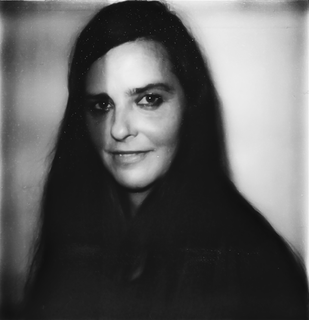Цитата Малкольма Гладуэлла
Моей писательской моделью является моя мама, которая тоже писательница. Превыше всего она всегда ценила ясность и простоту. Если кто-то не понимает, что вы пишите, то все остальное, что вы делаете, лишнее. Не имеющий отношения. Если какой-нибудь вдумчивый, любопытный читатель найдет то, что я делаю, непонятным, я потерпел неудачу.
Связанные цитаты
Писать — это писать мне. Я не в состоянии отказать ни одной писательской работе, поэтому я сделал все — историческую фантастику, мифы, сказки, все, что кто-либо проявляет хоть какой-то интерес к тому, чтобы я писал, я напишу. По той же причине, по которой я читал в детстве: мне нравится ходить куда-то еще и быть кем-то другим.
Она была гениальна и радостна и считала — наверное, правильно, — что библиотеки содержат ответы на все вопросы, на все, и что если вы не можете найти в библиотеке искомую информацию, то такой информации, вероятно, не существует в этом мире. или любая параллельная вселенная, которая сейчас или когда-либо будет известна. Она была вдумчивой и доброй, и она всегда верила в лучшее из всех. Прежде всего она была мастером-библиотекарем и знала, где найти любую книгу по любому предмету в кратчайшие сроки. И она была удивительно невозмутима.
Как часто я пытался объяснить студентам, пишущим, что первое, что должен сделать писатель, — это полюбить читателя и пожелать ему добра. Писатель должен верить, что читатель, по крайней мере, так же умен, как и он сам. Только в таком благожелании и доверии, только когда писателю кажется, что он пишет письмо хорошему другу, только тогда произойдет волшебство.
Проще говоря, метаписьмо — это письмо, которое самосознательно, саморефлексивно и осознает себя искусственным. Писатель знает, что она пишет, и она знает, что есть читатель, что восходит к часто используемому обращению Монтеня «дорогой читатель» или к его краткому предисловию к «Очерку»: «Читателю». Это можно сделать множеством способов.
Для меня важно понять, что все одиноки. Не в смысле одиночества, а скорее в том смысле, что никто не может до конца понять другого. Я очень хорошо знаю, что имеет в виду Дайан Арбус, когда говорит, что нельзя залезть в чужую кожу, но желание это сделать всегда есть. Я хочу пробудить определенные симпатии к человеку, которого сфотографировал.
Я довольно много выпиваю чашку кофе, некоторое время пишу в свой журнал, а потом сижу за компьютером в своем офисе и терзаю клавиши. Моя единственная спасительная способность как писателя заключается в том, что если у меня возникают проблемы с романом, который я пишу, я пишу что-то другое, стихотворение или рассказ. Я стараюсь избегать писательского блока, всегда что-то пишу.
Понимаете, на мой взгляд, писатель — писатель не потому, что он хорошо и легко пишет, а потому, что у него удивительный талант, потому что все, что он делает, — золото. На мой взгляд, писатель является писателем, потому что даже когда нет надежды, даже когда ничего из того, что вы делаете, не обнадеживает, вы все равно продолжаете писать.
Вы должны быть хорошим читателем. Итак, каким бы жанром вы ни интересовались, прочитайте много книг об этом, и это лучше, чем любые курсы письма, которые вы когда-либо посещали. Вы усвоите приемы, а затем во многих случаях сможете просто начать писать, используя стиль книги или автора, которым вы восхищаетесь, и тогда из этого возникнет ваш собственный стиль. Будьте прилежным читателем, а затем старайтесь писать серьезно, профессионально и подходить ко всему в письменном виде профессионально.
Если прозаик достаточно знает то, о чем он пишет, он может опустить то, что ему известно, и читатель, если писатель пишет достаточно искренне, почувствует эти вещи так же сильно, как если бы писатель их изложил. Достоинство движения айсберга заключается в том, что только одна восьмая его часть находится над водой. Писатель, опускающий вещи, потому что он их не знает, только оставляет пустые места в своем творчестве.


































